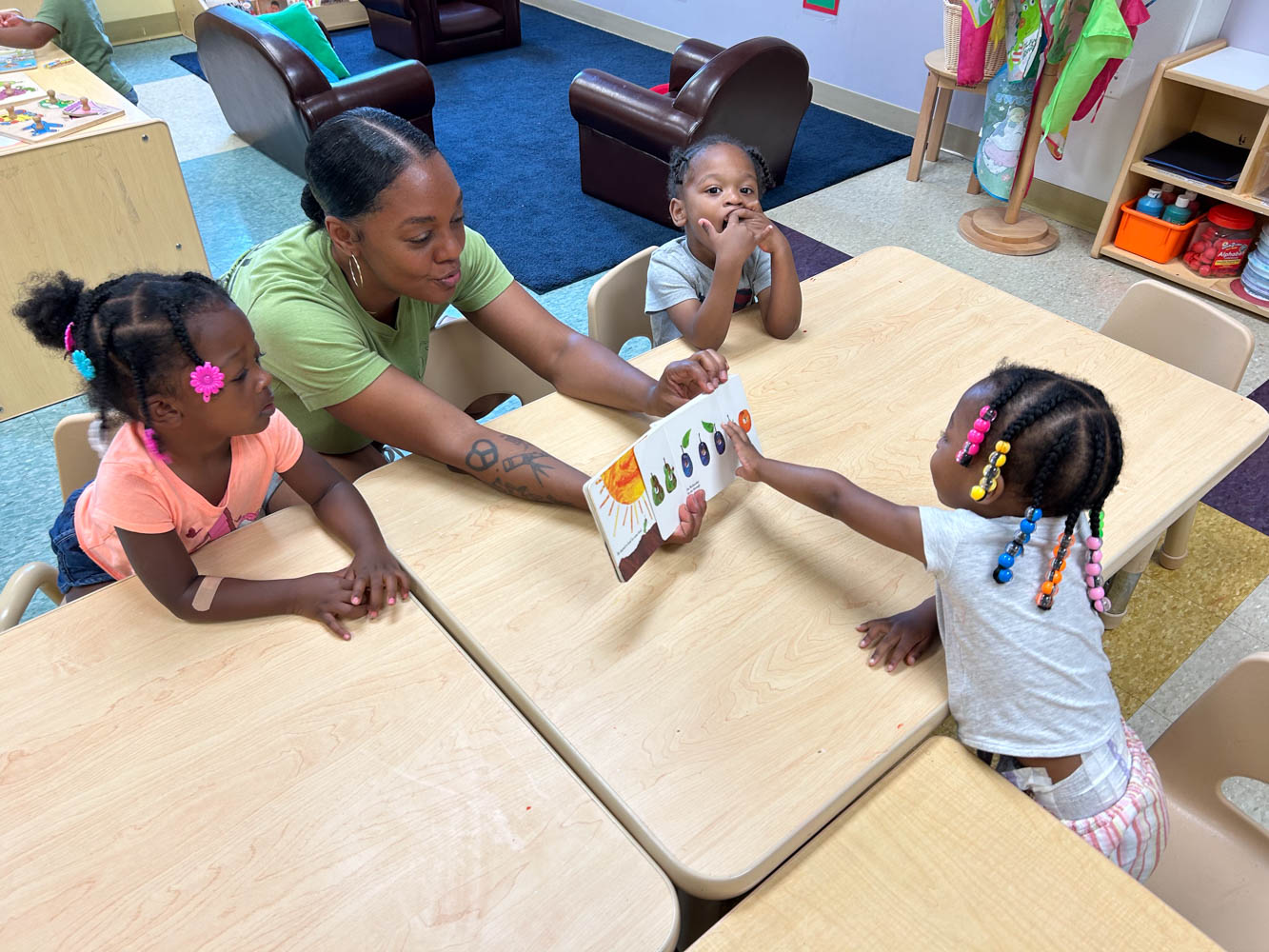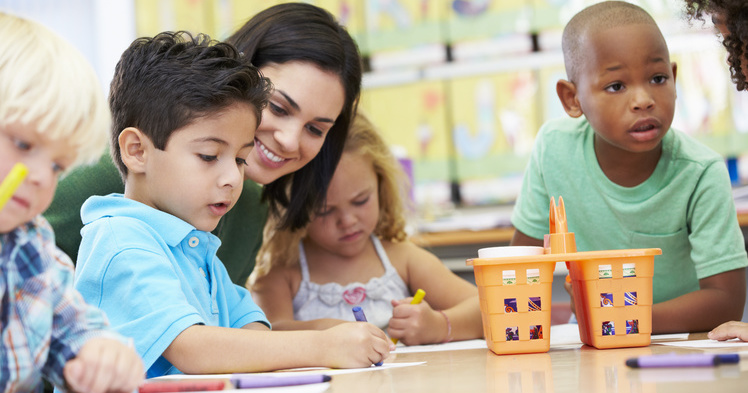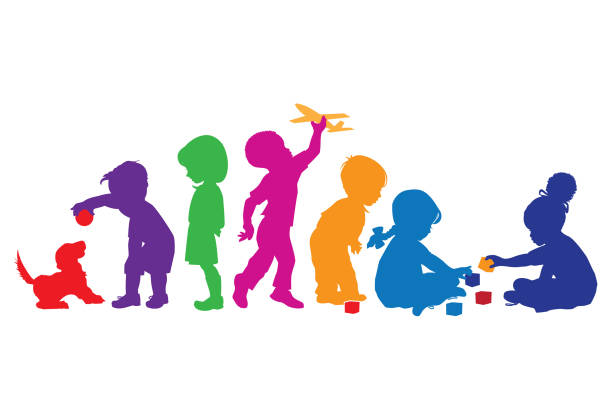How Childcare Near Me Can Help Build Confidence And Independence
The Function of Day Care in Fostering Social Skills and Very Early Learning
Daycare offers as a substantial setting for little ones, helping with vital social communications that advertise early learning. In this structured setting, children involve with caregivers and peers, developing vital communication and participation skills. As they browse play and various tasks, they find out to settle disputes and build psychological knowledge. Comprehending the subtleties of these interactions reveals the extensive impact daycare carries a kid's development, shaping their future connections and academic preparedness. What details skills do youngsters obtain in this setup?
The Importance of Social Interaction in Childcare
While numerous parents identify the importance of very early childhood education, the function of social interaction in day care is frequently taken too lightly. Daycare setups provide children with important possibilities to engage with peers, promoting necessary social abilities. During these formative years, children discover to navigate numerous social dynamics, such as sharing, teamwork, and problem resolution. Interacting with diverse age groups and characters enhances their capability to adapt to different settings and develop empathy towards others.

Structure Communication Skills With Play
Play works as a powerful tool for youngsters to build crucial interaction skills in day care setups. With different play activities, kids talk, express their thoughts, and discover to listen to others. Role-playing games, as an example, urge them to make use of language in various contexts, promoting vocabulary development and understanding of social signs.

Furthermore, narration during playtime allows children to communicate concepts and emotions, assisting them create narrative abilities and self-confidence in their verbal expressions. Generally, play not only serves as a pleasurable pastime yet additionally as an important platform for establishing the interaction skills required for successful social interactions in later life.
Encouraging Collaboration and Teamwork
Participation and teamwork are important abilities that children can cultivate in day care environments. Via various team activities, such as constructing tasks or collective video games, children learn to share duties and work toward common goals. These interactions cultivate an understanding of the relevance of paying attention to others, discussing duties, and endangering when needed.
In daycare setups, caretakers often develop chances for youngsters to take part in synergy by encouraging them to join team jobs. This not just helps youngsters establish social bonds yet likewise cultivates a feeling of belonging and community.
As they browse these participating experiences, children acquire valuable understandings right into the dynamics of functioning with peers. They find out to value diverse perspectives and recognize that each member adds distinctly to the group initiative. Ultimately, these very early lessons in teamwork and team effort lay the foundation for healthier connections and reliable partnership in future social and scholastic setups.
Structured Knowing Activities and Cognitive Advancement
Structured learning activities play an important function in promoting cognitive development in little ones (Child Care Center). These activities, that include challenges, narration, and hands-on experiments, promote important thinking and analytic abilities. In a day care setting, organized learning encourages youngsters to involve with their peers, enhancing their capability to process information and recognize different principles
With directed play and interactive jobs, kids develop fundamental skills such as numeracy and literacy. For circumstances, tasks focused around numbers can help youngsters understand mathematical concepts, while narration improves language procurement and comprehension. Furthermore, structured learning enables teachers to evaluate developing development and Childcare Near Me dressmaker activities to specific knowing demands.

Integrating a diverse series of organized tasks not just promotes cognitive growth however additionally prepares youngsters for future academic success. By offering a balanced atmosphere that promotes expedition and questions, daycare programs play a crucial duty fit the cognitive abilities of young students.
Fostering Emotional Knowledge and Self-confidence
Psychological knowledge and confidence are necessary elements of a kid's development, matching the cognitive abilities promoted with structured knowing tasks. In childcare setups, kids are offered with possibilities to share their feelings and involve in social communications, which are essential for developing emotional recognition. With assisted play and group activities, children find out to recognize their sensations, recognize those of others, and develop compassion.
Communication with caregivers and peers aids to grow self-confidence and durability. Favorable support and encouragement from adults encourage youngsters to take risks and face obstacles, cultivating a feeling of accomplishment. As they browse social characteristics, youngsters develop confidence in their capacities to communicate, team up, and fix problems - Childcare Near Me. This caring environment enables the gradual growth of emotional knowledge, which is essential for future social partnerships and total wellness. Therefore, day care plays a significant duty in cultivating both emotional intelligence and confidence in young youngsters
Frequently Asked Concerns
How Can Parents Choose the Right Day Care for Their Youngster?
Parents need to think about variables such as location, staff qualifications, safety and security standards, educational program, and assesses from other moms and dads when picking the right day care for their kid, ensuring it aligns with their kid's developing demands and family values.
What Age Is Finest for Beginning Childcare?

How Does Day care Impact Kid's Habits in your home?
Daycare frequently favorably influences kids's actions in your home by improving social skills, advertising self-reliance, and encouraging psychological guideline (Childcare North York). Consequently, youngsters may display enhanced interaction and teamwork, causing more harmonious household characteristics
Are There Any Kind Of Disadvantages to Day Care Participation?
Yes, there are disadvantages to childcare attendance, including prospective splitting up anxiousness, exposure to health problems, and irregular caregiving. These variables can affect a child's psychological health and change in the house, influencing total family dynamics.
Just How Can Parents Assistance Social Abilities Discovered at Day Care?
Moms and dads can support social skills learned at daycare by promoting playdates, encouraging cooperative tasks, modeling favorable interactions, discussing sensations, and enhancing sharing and communication in the house, therefore boosting their youngster's social advancement and confidence.
Day care serves as a significant atmosphere for young kids, assisting in crucial social interactions that promote very early discovering. Day care settings give children with vital chances to engage with peers, fostering necessary social abilities. Play serves as an effective tool for children to develop crucial interaction skills in childcare settings. In daycare setups, children are given with opportunities to reveal their emotions and involve in social interactions, which are critical for building psychological awareness. Day care usually favorably influences youngsters's habits at home by boosting social skills, advertising independence, and motivating emotional guideline.